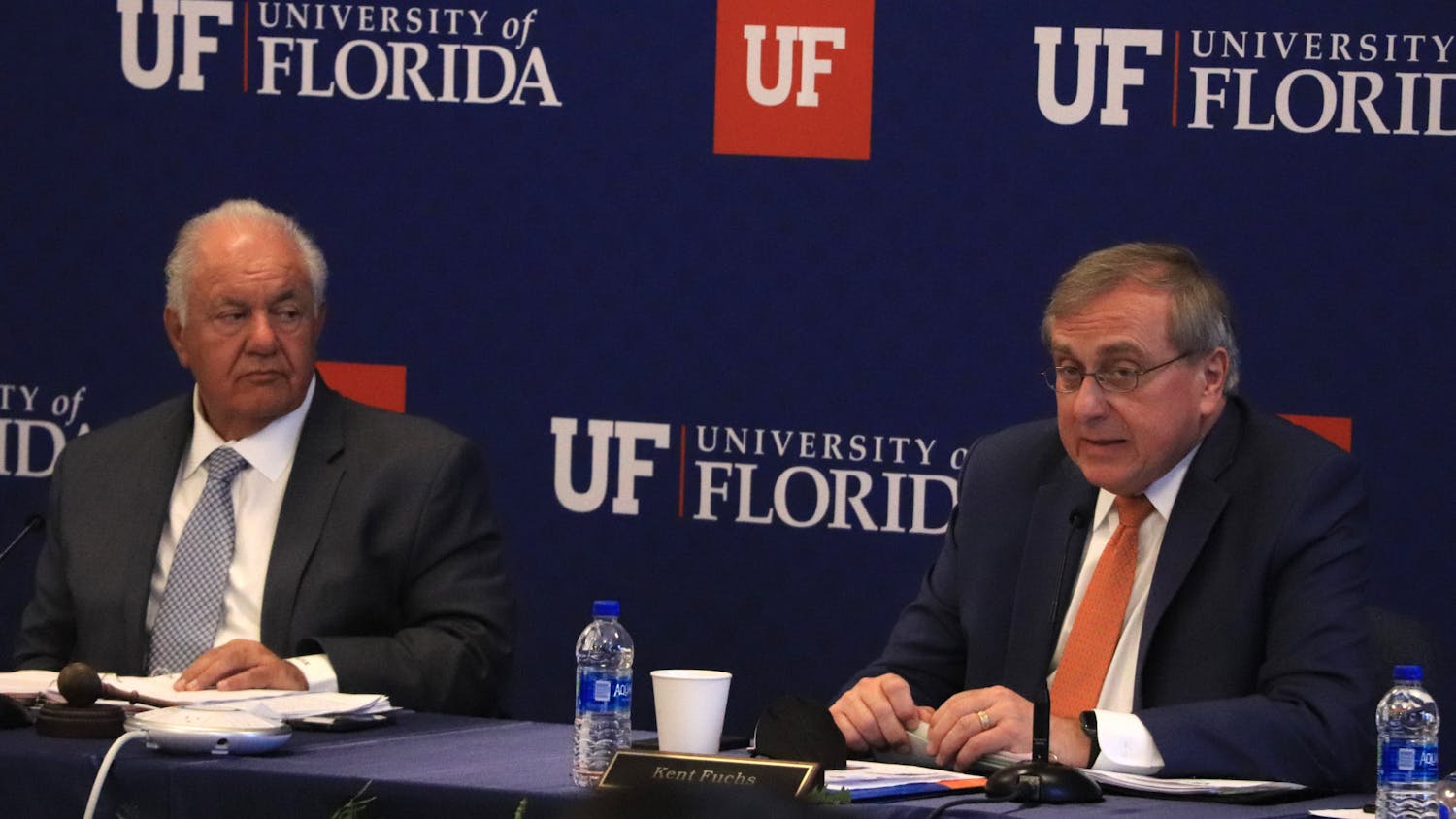Dear UF President Kent Fuchs,
I currently live and work as a global health specialist in Rwanda, a country that is all too familiar with how hate speech related to ethnicity can spark mass violence. In 1994, America stood by as one million Rwandans were murdered by violence sparked by genocide ideology. Together with my Rwandan colleagues, I have been watching the political situation in the U.S. unfold. A few days ago, I spoke with a colleague about the act of domestic terrorism that occurred in Charlottesville, Virginia. Today, I am proud to tell him students of color at my university and their accomplices made sure that a domestic terrorist who incited violence in Charlottesville would not speak at my alma mater. I am proud to tell him that you, President Fuchs, chose to stand beside your students.
I graduated from UF’s College of Liberal Arts and Sciences in 2013. During my time at UF, I had the honor of serving as an Inter-Residence Hall Association representative, a Gatorship staffer, a student ambassador for LGBTQ Affairs and a Florida Cicerone. I stood next to former UF President Bernie Machen as he attended the March Against Hate, which we organized in 2012 when a UF Levin College of Law professor found the word "f-----" scratched into his driver-side door. That same year, "n-----" was written on a petition demanding justice during a rally for Trayvon Martin at UF. Two years prior, a doctoral student, Kofi Adu-Brempong, was shot in the head by police at his home in Corry Village, and a swastika was spray-painted on a Jewish fraternity house at Vanderbilt University.
These incidents, when they happen at UF and other universities, are rarely followed-up by consequences for perpetrators because free speech is interpreted to mean a lack of consequences for one’s actions, rather than protection from arrest.
Public displays of aggression are echoed by micro-aggressions that students and faculty who belong to marginalized groups experience across campus. I recall a LGBTQ Affairs campaign in 2013 during which we posted signs across campus that displayed anonymous secrets. For example, one read, “Here is where I kissed a girl for the first time.” Next to Matherly Hall, another read, “Here is where some men in a pickup truck drove by and screamed ‘f-----’ at my girlfriend.” I remember one that I wrote that read, “Here is where I came out to my favorite professor.” She made me feel loved and accepted me immediately. I posted it in Turlington Hall. It was torn down the same day.
In the years since I’ve graduated, I’ve watched with horror as hate continues to find a platform on our campus. Every year the same group comes to inflict psychological violence against students whose reproductive rights are called to question by horrific blown-up images of mutilated fetuses. This year, a man wearing a swastika armband casually biked across our campus during Jewish American Heritage Month. In recent months, a battle for the Institute of Hispanic-Latino Cultures and the Institute for Black Culture has played out with students of color excluded from conversations that should prioritize their voices.
Students of color had to occupy a closed-door meeting and launch a campaign to participate in the preservation of their cultural institutes. So I was upset when UF entertained the idea of allowing Richard Spencer, a white supremacist, to incite hatred and violence against people of color on our campus. Considering our history though, I was not surprised.
Here in Rwanda, people gather every April to commemorate the genocide against the Tutsi. Rwandans commit and recommit to fighting against genocide ideology and violent extremism across the world. As a global citizen who appreciates the yearly reminder that it is our duty to protect our world against genocide, I hope you join me in committing to doing more to encourage our fellow Gators who have never been discriminated against based on religion or ethnicity to reflect on what men who use the same rhetoric as Richard Spencer have meant for people of color, for religious minorities, for our Student Body.
This is not the last time you will be asked to take decisive action to protect students of color — the work is ongoing. So when you doubt the validity or feasibility of the “radical” demands made by student groups who are fighting for fair treatment of students from marginalized backgrounds, I encourage you to remember the decision you just made in the broader context of human history. Go look at the lynching tree that still stands on Bo Diddley Community Plaza. Look at the genocide memorials in Rwanda and around the world. Remember what happens when men in positions of power, given the opportunity to protect black people, choose to do nothing.
Today, you decided it was your duty to protect students from violence. I thank you for that. Moving forward, I hope this sparks a larger commitment to listening to students of color and more action to eradicate white supremacy on our campus and beyond. There is so much left to be done.
Sincerely,
Joanna
Joanna Galaris is a UF alumna.





